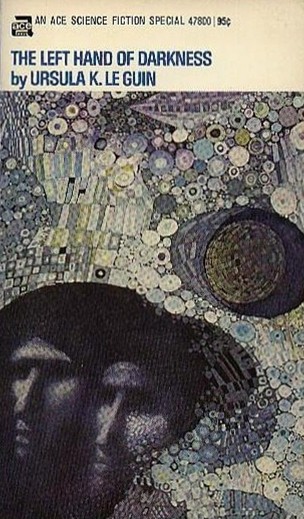Filed under: Copyright, DRM, Industry Change, Pricing | Tags: Amazon, Book Publishing, Dan Brown, Digital Books, Digital download, Digital Rights Management, DRM, eBook, ebooks, File Sharing, Free Content, Harry Potter, P2P, Piracy, Publisher's Weekly, PW, S&S, Scholastic Books, Simon and Schuster, Stephen King, The Lost Symbol, Under the Dome

UPDATE: This post has been refreshed from its original state. That’s what I get for taking Publisher’s Weekly at its word.
Anyway, mid-way through this piece I ask readers to suspend their disbelief – difficult to do when reading a post on book publishing, pricing and digital content, I know – and follow my argument as I use the information from the Publisher’s Weekly column slightly out of context but not entirely out of the realm of possibility.
Mark Coker from Smashwords.com lends useful insight via this Huffington Post piece. Follow the hashtag #publishersmatter on Twitter.
Please add any comments that you think are helpful.
***
Interesting piece from Publisher’s Weekly about Simon and Schuster’s decision to delay the release of the eBook version of Stephen King’s massive new novel, Under the Dome.
Apparently S&S will be releasing the 1000+ page novel on November 10th and then dropping the ebook on the market on December 24th. Timing is everything, I guess.
The Publisher’s Weekly piece also notes that the S&S will be charging $35 for the eBook, however some further research conducted at StephenKing.com indicates that the ebook will sell for standard Kindle-pricing.
Mr King asks his readers not to “believe the press reports that the e-book reader price for Under the Dome will be $35. This was the result of confusion from a press release from the publisher… It is true that you cannot order the book as an e-download until December 24th, but the physical book, which is a beautiful thing, you can pre-order for less than $9–so who’s better than us?”
So, pricing right? It’s all up in the air. Nobody knows what anything is worth whether it’s a brand spankin’ new hardcover or an infinitely replicable digital file. Are they both worth $9? Really? Are publishers seriously asking the public to swallow that crock?
But they’re trapped between the ruthless capitalism of dominant retailers at war with each other and the ruthless efficiency of the digital age.
***
Let’s say for example that the Great Book Pricing War of 2009 wasn’t happening and skewing this argument beyond proportion and let’s say that S&S thought that $35 for a hard cover was a fair price – which it is – and that $35 for an eBook was also a fair price – which is arguable to say the least.
I float this scenario forward for your consideration because I have heard book publishers say the very same thing – that a digital file should be priced at the same level as the physical product.
To me this notion of equal pricing for physical/digital looks more like a series of test balloons designed to reinforce industry fears than skillful marketing strategies for new books by some of English language’s most beloved authors.
Who gave the final OK on that pricing strategy and where is he/she getting their information?
It’s well documented that the last Harry Potter book – itself a hefty tome – was pirated and disseminated almost immediately upon release (in fact, an in-house perp at Scholastic did the job even before the book hit the shelves) and surely the people at Simon and Schuster are aware that this will happen here, too. I expect that this book will be seeded widely within 24 hours of officially going on sale.
I have documented the bibliographic zeal that Stephen King’s fans show toward his work online in my presentations on DRM and Free Content. I expect that a great majority will look at the cost of $35 for the hard cover version as a fair price to pay – and indeed many of the people who use P2P/torrent sites to download and share Stephen King’s books are dedicated enough to purchase the physical copy – and will see the same price for a digital file as incomprehensibly expensive.
This will certainly bear watching. I have to believe that this is some kind of Big Author Test of Current Market Conditions rather than a strategy that S&S expects to trot out for every new hard cover release.
Dan Brown’s The Lost Symbol showed us something about this new digital/print landscape and the new Stephen King promises to yield even more data even if it seems that it will come at the expense of common sense.
But one must keep an open mind. Hopefully this publishing event will show us something new.
Filed under: BookCamp Vancouver 2009, Copyright, Creative Commons, DRM, Industry Change, Pricing | Tags: Book Sales, BookCamp Vancouver, Books, Brian O'Leary, Digital Rights Management, DRM, File Sharing, Frankfurt Book Fair, Free Content, Magellan Media Partners, O'Reilly Media, O'Reilly Tools of Change for Publishers, P2P, Piracy
Filed under: Industry Change, Interview, Support Independents | Tags: 48 Hour Interview, Amy Logan Holmes, Book Oven, Book Publishing, BookCamp Toronto, BookCamp Vancouver, Clelia Scala, DRM, Fall Magazine, File Sharing, Future of Publishing, Hugh McGuire, Librivox, Librivox.org, Montreal, Open Book Toronto Magazine, Open Book: Toronto, P2P, P2P File Sharing Networks, Piracy, Publishing, Sean Cranbury, Toronto, Vancouver
Sometime around the middle of August I got an email from Amy Logan-Holmes at Open Book: Toronto asking whether I would be interested in participating in something called the 48 Hour Interview that would run in their Fall Issue.
She described it as an email exchange or co-interview between two people working within the books/publishing industry. The participants are free to discuss whatever they like provided that the ‘interview’ occurs within 48 consecutive hours and, I suppose, is at least tangentially related to the business at hand.
So I’m thinking, “Ok, that sounds doable. I wonder who she’s going to pair me up with?”
And, of course, it was Hugh McGuire, co-creator of Book Oven and Librivox.org. Organizer of BookCamp Toronto and well-coiffed confidante of the Digital Literati.
No pressure, right?
None.
It was a great, if somewhat long, interview that really dug into some key issues facing the evolving – convulsing? – book publishing industry today.
The whole thing was edited and punched into shape by the very talented Clelia Scala. Many thanks to Hugh and everyone at Open Book: Toronto.
For an example of something that I wrote for the interview that may or may not be interesting, please click the little red (more…) button below.
Filed under: Enthusiasms, Industry Change | Tags: Book Publishing, Brian O'Leary, DRM, Kirk Biglione, Magellan Media Partners, Medialoper.com, O'Reilly, Piracy, Quartet Press
Today I had the privilege of speaking to Kirk Biglione of Medialoper.com and Quartet Press in Pasadena, California about DRM and the current state of uncertainty in book publishing. He led me to look into a man named Brian O’Leary of Magellan Media who has just published a manuscript called ‘Impact of P2P and Free Distribution on Book Sales‘ with O’Reilly.
First, I found this audio interview between Kirk and Brian about the findings in Brian’s book. Essential listening.
I then tracked down this video of Brian’s presentation of his findings at the Tools of Change in Publishing Conference in February. Essential viewing click the image below.
The text below summarizes the video.
As digital content has become more available and more commonly distributed in book publishing, fears of piracy and lost sales have grown. The rise of peer-to-peer file sharing sites has likely amplified these fears. While the debate over the impact of ?free? content has been at times heated, the discussions are more often than not characterized by a lack of hard data. To address this data gap, O?Reilly Media began a project in 2008 to characterize the ?free? universe, catalog and assess recent experiments, establish ways to measure the benefit or cost of free distribution and conduct some follow-on experiments of our own. O?Reilly is joined in this effort by Random House, which contributed data for several of its own tests. Come to this session to hear an interim report on the initial phase of this ongoing study, including a preliminary model of where and when free distribution works as well as what?s worth continuing to track over time.
Filed under: BookCamp Toronto, Creative Commons | Tags: Booksquare, Cory Doctorow, New York Times, Piracy, Pirate Bay, Urusla Le Guin
 Pirates are upon us! They’re assailing us with their dastardly ways, their electronic disseminations, their digital altruisms. Quickly, assemble the attorneys and dispatch them to litigate the readership!
Pirates are upon us! They’re assailing us with their dastardly ways, their electronic disseminations, their digital altruisms. Quickly, assemble the attorneys and dispatch them to litigate the readership!
That quivering lip is corporate book publishing wondering what to do next about file sharing, bit torrents and the stealthy denizens of the Pirate Bay.
Digital book piracy has made it to the pages of the New York Times and it seems that the hand wringing is about to begin in earnest about how to deal with digital books leaked to the web.
Kassia Kroszer lends her sensibility to the argument with this post on the issue at her Booksquare blog. She notes while Ursula Le Guin and her publisher are dismayed to find digital versions of her book the Left Hand of Darkness on file sharing sites that it may actually indicate that there’s an unserved market for her work in this format and not an opportunity for panic.
Cory Doctorow closes the NYT article by saying, “I really feel like my problem isn’t piracy,” Mr. Doctorow said. “It’s obscurity.”
The waters are churning.
